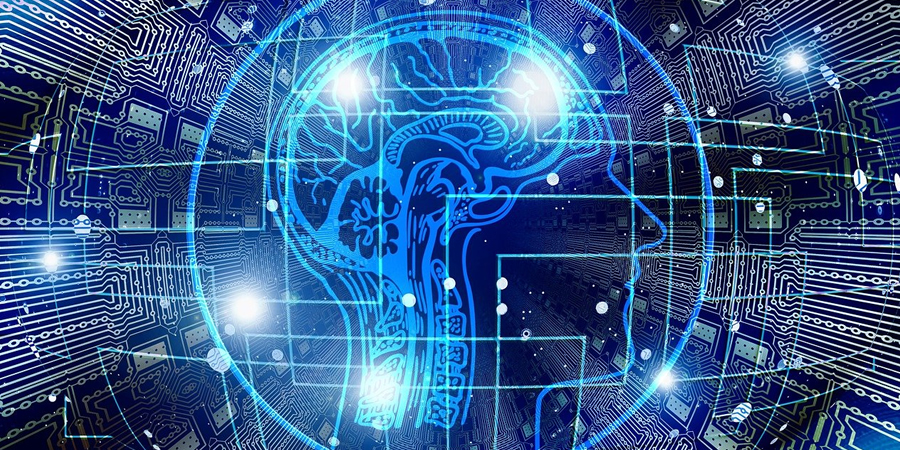“Our latest AI research shows 86% of businesses currently reaping the benefits of better customer experience through AI, and 25% of companies with widespread AI adoption expect to see the tech pay out in increased revenue during 2021. The pandemic has uncovered the value of AI, lending itself to enhancing tasks related to workforce planning, simulation modeling and demand projection,” said Anand Rao, global artificial intelligence lead at PwC.
Despite the world unexpectedly facing a catastrophe in 2020, the pace of innovation and technology adoption accelerated dramatically, particularly in key vertical markets. We are now considering, more than before, new options that would enable us to be better, smarter and faster. In a technical perspective, these advancements have been driven by cutting-edge technologies including artificial intelligence (AI).
Since 1956, at a conference in Dartmouth College, where the term “artificial intelligence” was initially coined, AI has made significant strides in a span of 65 years. With many research and development (R&D) and organizations exploring AI’s capabilities at a deeper level, customers and vendors began to develop more useful products powered by a machine.
Top AI trends for 2021
According to MarketsandMarkets Global Forecast, the global artificial intelligence market is anticipated to reach $190.61 billion by 2025. Hence, with this massive value, it is exciting to see what 2021 holds for AI adoption. What would drive AI domination this year? Mainly, AI is utilized for efficiency of operations and can be leveraged to improve the stakeholder experience as well.
Based on various resources, here are some of the top AI trends expected in 2021:
Autonomous vehicles
A PolicyAdvice report forecasted that roughly 33 million autonomous vehicles (AVs) will hit the road by 2040. Taking this into account, a positive momentum is underway. Although more testing should be done to fully guarantee the passenger’s safety.
AVs use a combination of sensors, cameras, radar, and AI to navigate between locations without a human driver. Waymo is known as the front-runner in the self-driving race. Moreover, its robotaxi service, Waymo One, topped 100,000 trips in 2020. Additionally, in terms of autopilot functionality in vehicles, Tesla has long been a pioneer, even naming their device ‘Autopilot’.
Revolutionizing the transportation industry, even Huawei is collaborating with various car makers in building self-driving vehicles. Sooner than later, AVs will be a typical scene along the streets as AI becomes more trusted for vehicle operations.
Quantum computing
Quantum computing and artificial intelligence are both transformative. To achieve a significant progress in adoption, AI and quantum computing should work hand-in-hand. Now why is quantum computing important?
To illustrate, quantum computing could spur the development medications to save lives, machine learning methods to diagnose illnesses sooner, and materials to make more efficient devices and infrastructures.
As per Frank Feather, CEO at AI-FUTURE Inc, quantum computing will scale-up rapidly in 2021 and will start to transform AI into a truly ‘advanced intelligence’. Accordingly, AI applications like machine learning (ML) and computer vision will be accelerated if run on quantum systems. This will mean faster analysis of data in sectors such as fraud detection and drug compound discovery.
Internet of Things (IoT)
Everything has changed. “Things aren’t going to be the way they were,” says Carmen Fontana, an IEEE member, and cloud and emerging technologies lead at Centric Consulting. The demand for interoperability is higher as organizations seek to deploy hybrid solutions.
Powering these solutions are AI and IoT. In light of the increasing number of connected devices and new opportunities for pandemic related uses and beyond, the intelligent use of data and information is necessary.
When AI is paired with IoT, simulating intelligent behavior is made possible to make informed decisions not impacted by human factors. Thus, the tandem innovation of both AI and IoT causes more productivity and accuracy. Later on, it can achieve mass adoption as AI becomes more intelligent and robust when processing different variables within devices.
Cloud computing
According to forecasts by Tractica, AI will account for as much as 50% of total public cloud services revenue by 2025. In a day-to-day living, those who make use of digital assistants like Siri, Google Home, and Amazon’s Alexa may not realize that they are utilizing AI and cloud computing together.
It is undeniable that in many ways, AI and cloud computing make the perfect match for data-driven innovation. Especially in a world where data is the new oil, AI’s cognitive capabilities and machine learning thrive, become scalable, and quickly accessible in a cloud environment.
On a business perspective, AI capabilities are working in the cloud computing environment to make organizations more efficient, strategic, and insight-driven. With more and more companies embracing cloud-based solutions, many will adopt AI to make smarter and more precise deliverables.
Natural language processing
NLP is the future of business intelligence. As a revolutionary technology in the field of AI, by 2025, the global NLP market is expected to reach over $34 billion. In detail, this technology allows for communication via speech, text, and messaging.
Among its widely-used applications include chatbot technology, speech recognition, spam filters, and machine translation. In line with this, NLP can be applied in various areas including recruitment, advertising, customer service, healthcare, as well as market intelligence.
Alongside the rise in smart device usage and adoption of cloud-enabled solutions, NLP-based applications are expected to unleash its full potential in the coming years. As businesses get affected by the COVID-19 pandemic, the NLP space remains a strong backbone of AI.
These trends are expected to drive AI domination in 2021. Aside from 5G, AI adoption is one of the most anticipated technological breakthroughs this year. It is inevitable that intelligence machines would influence nearly every facet of our lives to help improve efficiencies and augment our human capabilities.










